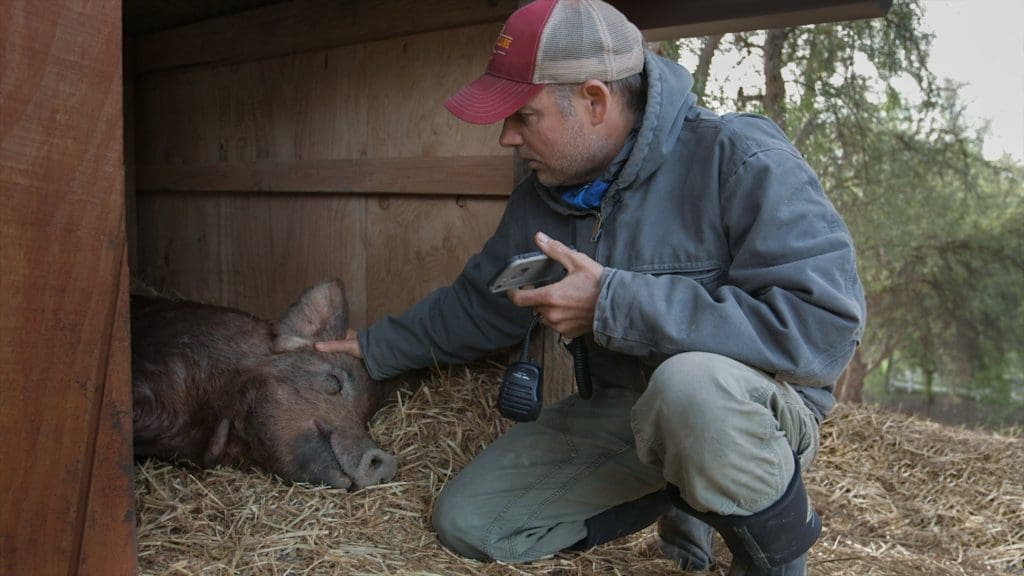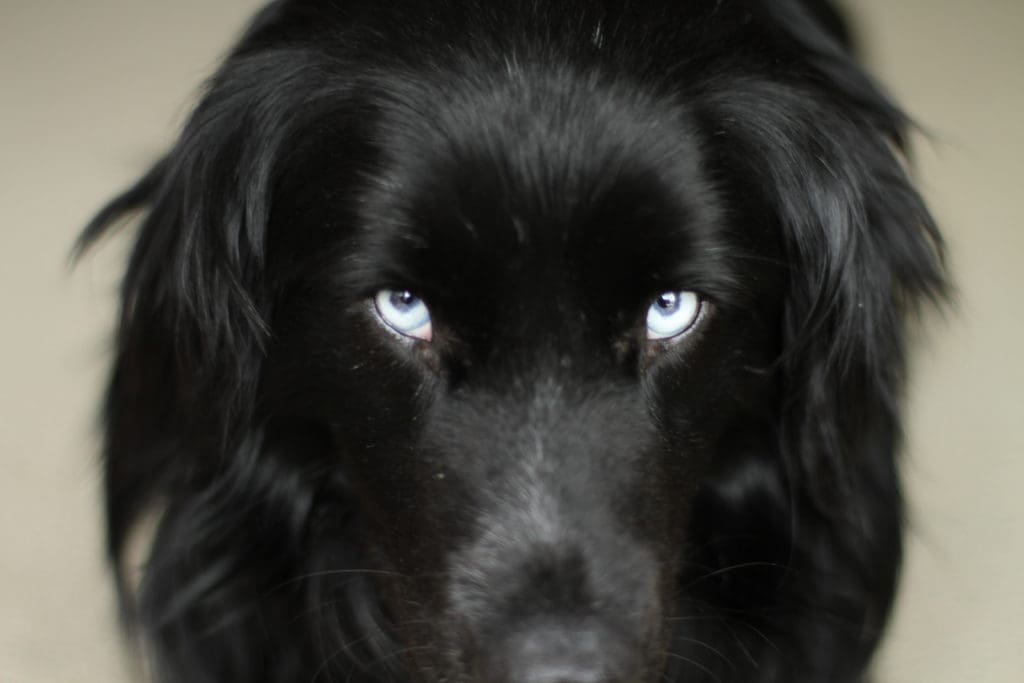
It all starts with a dog named Todd. When cameraman John Chester met Todd in 2010 while shooting an episode of Animal Planet’s Dangerously Devoted about a woman hoarding hundreds of dogs, he fell in love and brought him back to his small Santa Monica apartment to live with his wife Molly, a personal chef and food blogger who dreamed of one day growing all the food she cooks. She and John decide to take a chance on that dream after Todd’s barking gets them evicted. Thus the story of the new documentary The Biggest Little Farm co-written and directed by John Chester begins.
The land they settle on is Apricot Lane Farms, a patch of land located in Moorpark, California that is anything but fertile when they arrive. With the help of “traditional farming” consultant Alan York, Molly and John set up a farm focused on biodiversity meant to, as York puts it, “emulate how natural ecosystems work,” and struggle to overcome unexpected obstacles. At first blush, it’s an inspiring story about two people striving to revive land devastated by modern farming techniques, but the more we see of the Chesters and the ways they solve each problem they face, the harder it becomes to ignore the sickening sense of privilege that hangs over the whole affair.
Before we get to that, though, The Biggest Little Farm does have its merits. Chief among them is Chester’s filmmaking. A wildlife filmmaker by trade, John and Molly compulsively filmed every step of their years-long journey. We see each step they take to revitalize the land, from digging up the previous owner’s fallow trees to planting a new orchard, to watching their first harvest ruined by the arrival of bugs and birds. Though the Chesters go into farming with big dreams and even bigger ideals, watching them humbled by just how vast their undertaking is gives the film its drama.

Perhaps the best example is what to do about the coyotes that keep killing the chickens on whose eggs their business depends. When they first arrive, John is profoundly opposed to shooting the coyotes. As he explains it, their whole goal is to work with nature not against it. However, a few years in, when packs of coyotes start killing dozens of chickens at a time, it speaks volumes when John doesn’t hesitate to charge into the field with a gun after a coyote, no voice over is necessary. That said, Chester’s aversion to digging into the tougher parts of farming is a problem throughout and while his conflict with having to eventually slaughter animals raised from birth seems like naivety for someone who committed to running a farm in the first place, it’s his avoidance of the bigger questions that is the movie’s downfall.
Early on, the Chesters refer to an “investor” who gives them the seed money to pursue their crazy dream, but they never say how much that investment was. John admits that they go through their budget for the first year in just s9x months, but he doesn’t explain how they keep paying for things after that. Do they get another investor? Does the farm start paying for itself? It seems unlikely since their only sustainable source of income in the first two years are the chicken eggs and their 20-acre orchard takes until year seven before most of the crop isn’t eaten or destroyed by various wildlife. Nor do they explain whether or how much they pay the young workers who come from all over to “volunteer”. And while Chester’s vagueness about those details may be due to a choice to focus on the land itself, without important details about the logistics, Chester undercuts his own argument about the power of his type of farming.
By the time Chester returns to the wildfires that threaten the hard-won success of Apricot Lane, it‘s somehow both shocking and totally unsurprising that their land escapes entirely unscathed despite being surrounded by three separate wildfires. That insane luck only underscores all the advantages in place to help them succeed in the first place. John May see his farm as a microcosm of the Earth’s entire ecosystem, but he doesn’t realize he lives on a different planet than the farming he’s so determined to reject.

